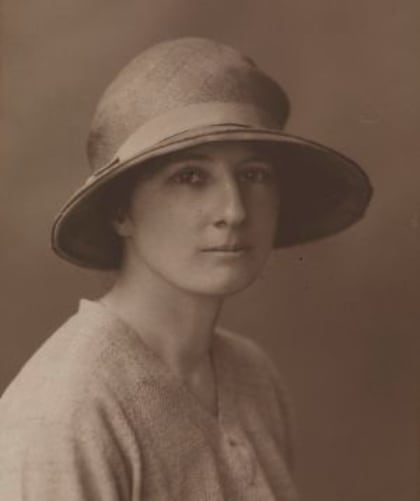«Cello Abbey», British and Irish music for cello and orchestra
How did the project begin?
While studying two years in London, I fell in love with three very different composers of the 20 century who have the special ability to create a whole parallel world of colours and feelings. A world that you don’t want to leave, a fascinating and beautiful place. I decided to record a cd with their pieces for cello and orchestra.

Get to know more about the pieces!
The first composition I would like to record is the well-known and wonderful concerto for cello and orchestra by Sir Edward Elgar composed in 1919. It is one of the first cello recordings that I ever heard and I remember that, as a 6 years old girl, it was my dream to play this piece with orchestra, as much as it was my dream to become a princess. Now, of course, I have very different motivations when it comes to this piece: this music is so enigmatic and passionate at the same time, I always thought that this piece carries a real mystery for each cellist to uncover with his own sensibility. Only a few days ago, I came across a text that confirmed my intuition: Edward Elgar must have said that his cello concerto was meant to musically explore the image of a man contemplating the meaning of life…
The second piece of this CD will be the cello concerto by Sir William Walton, composed in 1956. I fell in love with William Walton’s music for the first time when I was playing his sonata for strings in the soloist ensemble of the Royal Academy of Music a few years ago. It was a love at first listening. I would come home after a whole day of rehearsal and listen to it one more time before going to bed, and again on the tube going to the next rehearsal. Walton wrote melodies and harmonies that seem to weave a parallel reality which changes suddenly, creating new colours and forms, kaleidoscope like. It is hypnotizing and simply stunning.
And now to what could be the most exciting part of the project: Ina Boyle. Ina Boyle was a female composer living in the 1 half of the 20 century who composed a great amount of works. Unfortunately, she didn’t experience a great recognition at all. She lived her whole life in her parent’s place in the countryside of Dublin, and although she went from time to time to take composition lessons with Ralf Vaughan Williams, she didn’t seem to like the life of the metropole and didn’t stay there long enough to make a name for herself. It is incredible to read her journal and see how hard life has been for her. She sent her works to so many musicians who didn’t reply or weren’t motivate to read it, she even went so far as to try and plant peas in her garden to have a little rent. She never stopped composing. The documents I found about her show an immense strength accompanied by a sort of tranquillity, may be the conviction to be doing the right thing even if her supporters were very few. As I read her Elegy for cello and orchestra (1913) for the first time, I was immediately taken by the music, so profound, often melancholic, with a sense of realism that is very moving. I mentioned that it might be the most exciting part of the recording: you have to imagine what it is to play a piece for the first time in History, especially when it has been written so long ago. It feels like delivering a message that has been waiting way too long.
Who else will be involved in this project?
I have found wonderful performers willing to accompany me in this project: The Staatskapelle Weimar, a first category German orchestra which I played a concert with a few years ago. I remember their gorgeous sound and incredible flexibility. I could also win Paul Meyer as conductor!
Why do I need your support?
As you might know, the CD industry is having a tuff time right now, and most of the CD labels have adopted a new business model in which even well established artists have to support a part of the production costs. This is something that I couldn’t possibly afford on my own and if you are happy to help me, I have a lot of different ways to thank you, just have a look at the menu to discover them.

